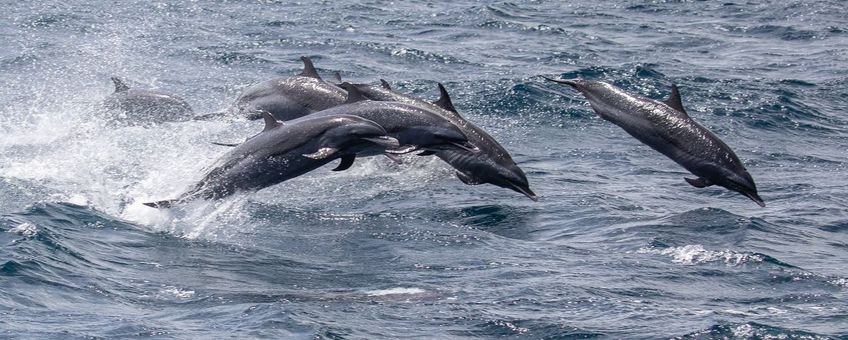
Marine mammals in the Caribbean: a threatened treasure in our waters
Caribbean Cetacean Society, Dutch Caribbean Nature Alliance (DCNA), World Wide Fund for Nature – NetherlandsCCS unveils the latest results as it has recently completed 6 new scientific expeditions in 2022 in all the Lesser Antilles. The findings show that our waters are very rich but threatened. More data are needed to better protect this resource which is one of the pillars of our blue economy. Thanks to the cooperative work carried out during the expeditions, 437 sightings of 21 species have been recorded in 2 years, including 202 sightings of juveniles.
"Ti Whale An Nou" (Our Little Whales) is the largest cetacean study program ever conducted in the Caribbean. It is first and foremost a local project, led and carried out by motivated West Indians, including people from the islands of the Dutch Caribbean, who are concerned about preserving their islands. Several employees of the Saba Marine Park, St. Eustatius National Parks and WWF-NL joined the CCS team for this expedition. As cetaceans cannot recognize human boundaries, cooperation is essential to study and protect them. This is why the CCS has brought together in the field international participants, including members of the government and marine protected areas of 9 islands. Finally, it is an essential tool for local capacity building.
All the Caribbean islands depend on the marine ecosystem for their food and income, so it is important to protect it. Whales and dolphins play an essential role in maintaining the good condition of our ecosystems. They are pillars of our blue economy. However, the latest results of the CCS show that more than half (52%) of the cetaceans observed in 2021 have scars of anthropogenic origin. That is, traces of propellers, nets, collisions, etc. ... inflicted by humans. The current lack of data does not allow us to effectively protect our natural heritage. This is why the CCS continues to organize inventories in all the islands. This is a first in terms of sustainable action of cooperation and protection of cetaceans in the Caribbean region.
These actions are possible thanks to the support of partners: WWF-NL, Corail Caraïbes, the Parc Naturel régional de la Martinique, the EDF Group Foundation, Orange Caraïbes, SARA, DCNA, the Animal Welfare Institute, the Guadeloupe region, the Collectivité territoriale de Martinique, and Blue Marine Foundation.
